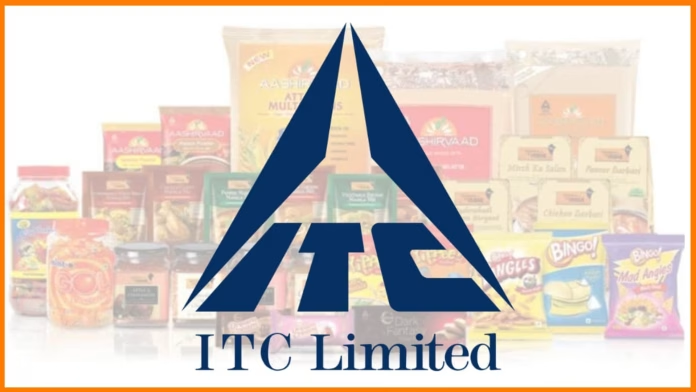In the nine months leading up to September, ITC Ltd has emerged as the leading fast-moving consumer goods (FMCG) manufacturer in the food sector based on domestic sales, surpassing competitors such as Adani Wilmar, Britannia, Parle Products, and others. This information is according to the most recent data from market tracker NielsenIQ, as disclosed by three industry executives.
During the specified period, ITC achieved food FMCG sales amounting to INR 17,100 crore, surpassing competitors such as Britannia with INR 16,700 crore, Adani Wilmar with INR 15,900 crore, Parle Products with INR 14,800 crore, Mondelez with INR 13,800 crore, and Hindustan Unilever Ltd (HUL) with INR 12,200 crore, as indicated by NielsenIQ data.
In comparison to the same period last year, ITC has risen from the fourth position, where Adani Wilmar held the lead. Adani Wilmar recorded sales of INR 16,100 crore in the January-September period last year, while Britannia reached INR 14,900 crore, Parle at INR 14,800 crore, ITC at INR 13,900 crore, and Mondelez at INR 12,400 crore, according to NielsenIQ data.
According to industry executives, one of the primary factors enabling ITC to surpass Adani Wilmar was the significant decline in edible oil prices.
This has influenced the earnings of the nation’s leading edible oil company during the nine-month duration. In September, edible oil prices were consistently below $1,000 per tonne, a notable decrease from the peak of $2,000 per tonne observed in April-May 2022. Concurrently, ITC benefited from a rise in atta prices. The company’s packaged atta, marketed under the Aashirvaad brand, stands as the primary revenue generator for its food business.
Additionally, the majority of items within its extensive product range are experiencing growth. The company consistently introduces over 100 new food FMCG products annually.
Hemant Malik, the Executive Director of ITC Ltd, stated that every product category within the company’s food business has contributed to growth this fiscal year.
Under the purview of Malik, who manages ITC’s foods business, the portfolio encompasses rapidly expanding categories like biscuits, witnessing an 11% growth in the current calendar year, and salty snacks, with the market experiencing a growth exceeding 20%.
“The current trends along with the increase in atta prices have contributed to boosting revenue growth,” he said.
Despite the government’s ongoing prohibition on wheat exports, the retail inflation for wheat this year has fluctuated between 5% and 9%.
Angshu Mallick, CEO of Adani Wilmar, attributed the decline in sales solely to the decrease in edible oil prices.
According to a spokesperson from NielsenIQ, the company does not authenticate, validate, or furnish details on company-specific data, adhering to the confidentiality clauses outlined in their client agreements.
Adani Wilmar has experienced a decline in revenue due to the decrease in edible oil prices, but there has been an increase in volume sales.
In the first half (April-September) of the current fiscal year, the company recorded a 18% year-on-year growth in volume, accompanied by a 13% decline in sales revenue. According to Adani Wilmar’s recent quarterly earnings release, profitability was adversely impacted by the decrease in edible oil prices.
The success in the foods business is pivotal for ITC as it pursues its ambition to become the country’s leading non-cigarette FMCG company and mitigate exposure to taxation uncertainties in the cigarette industry. Contributing over 82% to its non-cigarette FMCG sales, the foods business stands as a profitable cornerstone of ITC’s diversified portfolio.
According to NielsenIQ data, snacks, food products, and packaged groceries emerge as pivotal segments propelling the growth of the entire food FMCG category in the country. Within the food segment, Nestle leads in modern trade contribution at 18.8%, followed by HUL at 15.9%, Mondelez at 14.2%, ITC at 12.2%, and Adani Wilmar at 11.3%.





